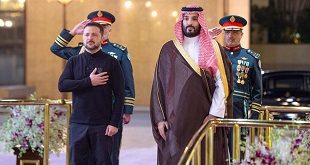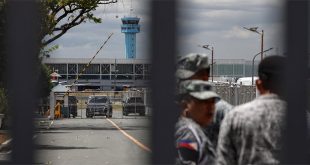
United Nations, United States | AFP |
Portugal’s former prime minister Antonio Guterres is still the frontrunner to become the next secretary-general of the United Nations following a third straw poll held Monday, diplomats said.
Guterres, who served as UN refugee chief for 10 years, received 11 votes of encouragement, three “discourage” votes and one “no opinion” during the informal vote by the 15-member Security Council.
It is the third time that the 67-year-old has taken the number one spot in the contest to succeed Ban Ki-moon, who steps down on December 31 after 10 years as the world’s top diplomat.
During the first round, Guterres took the lead with 12 “encourage” votes and three “no opinion,” but he picked up two “discourage” votes in the second straw poll, along with 11 encouragements and two “no opinion.”
While Guterres’s ranking dropped slightly in the third straw poll, diplomats said he still held a strong lead in the race to take the helm of the world body.
“He remains well ahead of the pack,” a Security Council diplomat said, speaking on condition of anonymity.
Slovak Foreign Minister Miroslav Lajcak made a surprise showing as the runner-up, climbing up the rankings with nine encouragements, five discourage votes and one “no opinion.”
He took the sixth position in the last round.
The 15 ambassadors including those from the powerful five — Britain, China, France, Russia and the United States — met behind closed doors to rate the candidates with ballots marked “encourage,” “discourage” or “no opinion.”
The Security Council is trying to come up with a shortlist of candidates before putting forward a nominee, possibly in October, to be endorsed by the General Assembly.
– Bokova, Jeremic in a tie –
UNESCO chief Irina Bokova of Bulgaria and Serbia’s ex-foreign minister Vuk Jeremic tied for the third spot, with seven encouragements and five “discourage” votes, plus three “no opinion.”
Bokova became the leading woman in the race, just ahead of Argentina’s Susanna Malcorra, who picked up seven encouragements, seven “discourage votes and one “no opinion.”
Lower down the rankings, New Zealand’s ex-prime minister and current UN Development Program chief Helen Clark took the number six spot, just below Macedonia’s ex-foreign minister Srgjan Kerim.
Clark picked up six encouragements, eight “discourage” votes and one “no opinion,” compared to six encouragements, seven “discourage” votes and two “no opinion” for Kerim.
Slovenia’s former president Danilo Turk, who had made a strong showing as the runnerup in the first round, dropped to the bottom tier, with five encouragements, six “discourage” votes and four “no opinion”.
The last spots went to former UN climate negotiator Christiana Figueres and ex-foreign minister Natalia Gherman of Moldova, who both picked up two encouragements, 12 “discourage” votes and one no opinion.
The results of the straw poll were not publicly announced, but the council president communicated them to the candidates to give them an indication of the level of support in the council.
As with the two first straw polls, the results were quickly leaked to the media.
Council members are facing calls to pick the first woman after eight men in the job, and to give preference to a candidate from eastern Europe, the only region that has yet to be represented in the post.
Russia has said it will give priority to eastern European candidates, but has not ruled out that contenders from other regions could be qualified for the post.
Of the 10 candidates now still in the running, six are from eastern Europe. Five are women.
Only two have dropped out of the race thus far, but others are expected to withdraw after this latest straw poll.
 The Independent Uganda: You get the Truth we Pay the Price
The Independent Uganda: You get the Truth we Pay the Price


